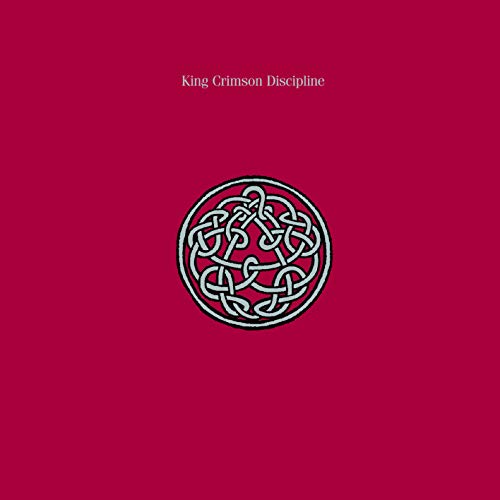Joe Banks “King Crimson – 10 of the best” https://www.theguardian.com/music/2017/apr/26/king-crimson-10-of-the-best
2017年の記事。
ジョー・バクンス氏が選んだキング・クリムゾン*1のベスト・テンは、
1. “21st Century Schizoid Man” (1969)
2. “Epitaph” (1969)
3. “Cat Food” (1970)
4. “Ladies of the Road” (1971)
5. “Larks’ Tongues in Aspic, Part One” (1973)
6. “The Night Watch” (1974)
7. “Red” (1974)
8. “Starless” (1974)
9. “Thela Hun Ginjeet” (1981)
10. “Happy With What You Have to Be Happy With” (2002)
「21世紀の精神異常者」を巡って;
ファースト・アルバムに収録されていた「墓碑銘」は”a poignant updating of Wilfred Owen’s Anthem for Doomed Youth*2 for the Vietnam era”なのだという。
If proof were needed that the utopian gestures of the late 60s had been trampled into the dirt, then this was it: a synapse-blasting onslaught of boundary-wrecking jazz rock, somehow both austere and strangely groovy. The crunching verse/chorus is astonishing, but there’s also that swinging instrumental break in the middle, its rapid accelerations and sudden stops an exercise in gleeful precision that leaves the listener giddy and disorientated.King Crimson’s signature tune to this day, 21st Century Schizoid Man captures all their defining qualities: non-rock instrumentation used in inventive and powerful ways, technical proficiency harnessed for dramatic effects, striking imagery sparingly deployed. Most importantly, it shows an appreciation of what makes music exciting rather than merely impressive.
セカンド・アルバム『ポセイドンのめざめ』に収録された”Cat Food”は”a lithe and playful side to their songwriting that is often overlooked”を代表する曲であるという。
Peter Sinfield’s fanciful and allusive lyrics could sometimes strain for meaning on the band’s early albums, but Epitaph’s depiction of the senselessness of war is genuinely affecting. Against a roll of timpani, Robert Fripp plays a beautifully sad guitar line that belies his image as some kind of cranky mad scientist. There’s a drop-down to a tense pre-battle silence, broken only by a stark, double-tracked snare and Lake’s weary vocal. But it’s the moment when the song moves into its mournful middle section, with a gigantic swell of Mellotron, that packs the biggest punch.
『アイランズ』に収められた“Ladies of the Road”を巡って;
アルバム Larks’ Tongues in Aspicを巡って;
Fripp’s lazy, meandering playing creates a deliciously salacious atmosphere as new singer Boz Burrell plays the part of a stoned lothario, delivering a stream of politically incorrect lyrics. (Interesting to note that Fripp preferred vocalists with a little grit in their voices – a sharp contrast to the more affected performers of the prog era.) There’s some rasping, predatory sax from Mel Collins and slapback echo added to Burrell’s voice, before an incongruous lullaby of a chorus recalls the Beatles once again. Fripp’s tottering, teasing guitar is a million miles from the more angular sound with which he’s become associated, and by the end, Burrell has practically transformed into Robert Plant.
1970年代クリムゾンの最後を飾るアルバムRed;
By 1973, Fripp had completely reconfigured the band once again, bringing together a group of players that he hoped would fulfil his vision of an intelligent, improvisational rock band. Improvisation had always been an important part of King Crimson’s sound, but Fripp had become increasingly interested in it as a primary method of composition. (Though as incoming drummer Bill Bruford noted, this was far from an easy process – in his former band Yes, every tiny detail had been debated and discussed whereas in King Crimson, “almost nothing was said”*3.)
“Starless”;
King Crimson had slimmed down to the power trio of Fripp, Wetton and Bruford by the time they came to record what would be their swansong to the 1970s. But what a way to go out. Red is a consistently intense album, and its title track is a magnificent opener that plunges the listener into a world of fear and loathing.
“Thela Hun Ginjeet”が収められたアルバムDisciplineについて;
Just as any best of King Crimson must include 21st Century Schizoid Man, so too must it feature Starless, both tracks neatly bookending their 70s’ studio albums. While Schizoid Man lays out the band’s essential qualities up front, Starless feels like a summation of everything they’ve learned along the way.The eerie Mellotron and guitar opening harks back to Epitaph, though the angry disillusionment has now turned into fatalistic reverie, with Wetton delivering his most emotive vocal. Fripp’s icy finger-picking and Bruford’s sinister barrage of percussion midway through draws on the controlled restraint learned during innumerable hours of improvisation. And the final detonation of manic jazz rock shows just how powerful King Crimson are in full flow, the seamless builds and breakdowns a masterclass in dynamics. Starless is the pinnacle of their first phase – yet there was more to come.
Discipline is one of the definitive art rock albums of the 1980s, and the band’s new sound is best showcased in Thela Hun Ginjeet. Its fast, rhythmic guitars, funky bassline (courtesy of Tony Levin on the 10-string Chapman Stick) and clattering tribal percussion from the returning Bruford create a super-kinetic vibe, while the chanted title sounds like it’s from some new-age self-actualisation ceremony (it’s actually an anagram of “heat in the jungle”).
*1:See also https://sumita-m.hatenadiary.com/entry/20060929/1159497317 https://sumita-m.hatenadiary.com/entry/20061113/1163428139 https://sumita-m.hatenadiary.com/entry/20070108/1168229799 https://sumita-m.hatenadiary.com/entry/20070224/1172293773 https://sumita-m.hatenadiary.com/entry/20071024/1193237687 https://sumita-m.hatenadiary.com/entry/20071208/1197141510 https://sumita-m.hatenadiary.com/entry/20080407/1207508410 https://sumita-m.hatenadiary.com/entry/20080614/1213418260 https://sumita-m.hatenadiary.com/entry/20080620/1213951541 https://sumita-m.hatenadiary.com/entry/20081012/1223836577 https://sumita-m.hatenadiary.com/entry/20081106/1225944380 https://sumita-m.hatenadiary.com/entry/20081216/1229357559 https://sumita-m.hatenadiary.com/entry/20090602/1243916599 https://sumita-m.hatenadiary.com/entry/20090716/1247758711 https://sumita-m.hatenadiary.com/entry/20091015/1255630063 https://sumita-m.hatenadiary.com/entry/20091028/1256705010 https://sumita-m.hatenadiary.com/entry/20091124/1259077779 https://sumita-m.hatenadiary.com/entry/20091129/1259460953 https://sumita-m.hatenadiary.com/entry/20091208/1260209715 https://sumita-m.hatenadiary.com/entry/20100728/1280293011 https://sumita-m.hatenadiary.com/entry/20100805/1281010406 https://sumita-m.hatenadiary.com/entry/20150130/1422638885 https://sumita-m.hatenadiary.com/entry/20161209/1481250478 https://sumita-m.hatenadiary.com/entry/20170204/1486229040 https://sumita-m.hatenadiary.com/entry/20170213/1486989136 https://sumita-m.hatenadiary.com/entry/20170909/1504926913 https://sumita-m.hatenadiary.com/entry/20171016/1508130214 https://sumita-m.hatenadiary.com/entry/2019/02/24/042326 https://sumita-m.hatenadiary.com/entry/2019/02/25/092422 https://sumita-m.hatenadiary.com/entry/2019/03/04/131442 https://sumita-m.hatenadiary.com/entry/2019/03/04/201321 https://sumita-m.hatenadiary.com/entry/2020/04/06/151251 https://sumita-m.hatenadiary.com/entry/2020/04/20/110617 https://sumita-m.hatenadiary.com/entry/2020/10/22/153449 https://sumita-m.hatenadiary.com/entry/2020/12/20/082031 https://sumita-m.hatenadiary.com/entry/2022/01/08/083318 https://sumita-m.hatenadiary.com/entry/2022/02/12/131616 https://sumita-m.hatenadiary.com/entry/2022/02/13/142541 https://sumita-m.hatenadiary.com/entry/2022/03/09/135837
*2:Eg. https://www.warpoetry.co.uk/owen2.html
*3:“Music / King Crimson” (https://tvtropes.org/pmwiki/pmwiki.php/Music/KingCrimson )という記事からの引用。
Everything you've heard about King Crimson is true. It's an absolutely terrifying place... In Yes was an endless debate about should it be F♮ in the bass with G♯ on top with the organ, or should it be the other way round. In King Crimson, almost nothing was said. You were just supposed to know.





